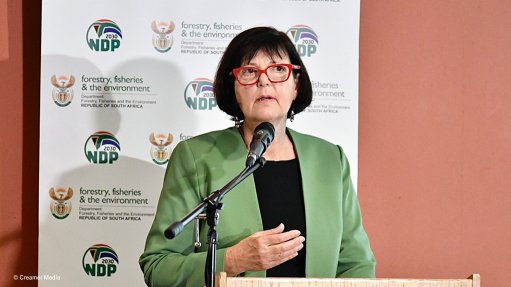SA government’s “tight rope” viewpoint on TES
This article has been supplied as a media statement and is not written by Creamer Media. It may be available only for a limited time on this website.
Although South Africa is a country more industrialised than any of its fellow African counterparts, it nevertheless currently possesses record-high unemployment rates. According to Trading Economics, South Africa’s 2021 third quarter 34.90% unemployment rate is the “highest jobless rate since comparable data began in 2008.”
It is a tough juggling act between offering employment opportunities, promoting fair employment and protecting the rights of employees all in one through comprehensive legislation. The South African government responded by establishing policies to regulate all employment such as the Labour Relations Amendment Act (LRAA) and the Employment Services Act (ESA).
In 2000, government mandated studies were conducted to examine the last 20 years of the South African labour market. The data revealed that there had been a great shift towards casualised labour. This distinct pattern in the labour market had been picked up and utilised by the Temporary Employment Services (TES). But what is the government’s perspective of the industry? “The truth is, as an employer, the government needs the TES industry to function,” says Kevin Cowley, who has almost two decades of experience in the industry and is also Human Resources Director at Primeserv Group. He goes on further to say that at least 40% of government employees come from the TES companies. It makes sense then that industry players were involved from 2000-2014 in the negotiations with the National Economic Development and Labour Council (Nedlac) whose task is to seek cooperation between government, labour, business and community organisations. This resulted in an updated LRA which came into effect in April 2015. As a whole it needed to reflect the changing times and largely casual labour market, it also included specific regulation of fixed term contracting.
“That divided the wheat from the chaff. It bolstered what the TESD had been driving for years,” says Cowley. The Temporary Employment Services Division (TESD) was established in 1994 as the Labour Broking Division, which assures compliance and credibility of its members. Cowley added that for years the government has had to walk a tightrope on their perspective of TES. “Government knows they cannot promise permanent employment.” On one hand, they are major employers that support the industry, making TES critical to the economy. On the other hand, Cowley highlighted that the government has to pacify strong trade unionism in the country, which historically had much influence over the labour market.
Comments
Announcements
What's On
Subscribe to improve your user experience...
Option 1 (equivalent of R125 a month):
Receive a weekly copy of Creamer Media's Engineering News & Mining Weekly magazine
(print copy for those in South Africa and e-magazine for those outside of South Africa)
Receive daily email newsletters
Access to full search results
Access archive of magazine back copies
Access to Projects in Progress
Access to ONE Research Report of your choice in PDF format
Option 2 (equivalent of R375 a month):
All benefits from Option 1
PLUS
Access to Creamer Media's Research Channel Africa for ALL Research Reports, in PDF format, on various industrial and mining sectors
including Electricity; Water; Energy Transition; Hydrogen; Roads, Rail and Ports; Coal; Gold; Platinum; Battery Metals; etc.
Already a subscriber?
Forgotten your password?
Receive weekly copy of Creamer Media's Engineering News & Mining Weekly magazine (print copy for those in South Africa and e-magazine for those outside of South Africa)
➕
Recieve daily email newsletters
➕
Access to full search results
➕
Access archive of magazine back copies
➕
Access to Projects in Progress
➕
Access to ONE Research Report of your choice in PDF format
RESEARCH CHANNEL AFRICA
R4500 (equivalent of R375 a month)
SUBSCRIBEAll benefits from Option 1
➕
Access to Creamer Media's Research Channel Africa for ALL Research Reports on various industrial and mining sectors, in PDF format, including on:
Electricity
➕
Water
➕
Energy Transition
➕
Hydrogen
➕
Roads, Rail and Ports
➕
Coal
➕
Gold
➕
Platinum
➕
Battery Metals
➕
etc.
Receive all benefits from Option 1 or Option 2 delivered to numerous people at your company
➕
Multiple User names and Passwords for simultaneous log-ins
➕
Intranet integration access to all in your organisation





















